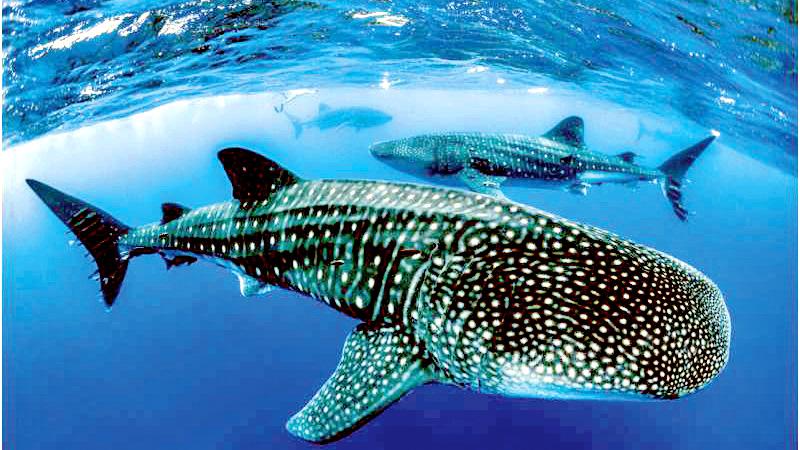
Shipping poses an increasingly ‘significant threat’ to the endangered whale shark, marine biologists have warned. They found that ships are killing large numbers of the sharks, which are the biggest of any fish species alive on Earth today.
Their numbers have been declining across the world in recent years but experts were bemused as to why.
Now scientists from the Marine Biological Association (MBA) and the University of Southampton have led ground-breaking research which indicates that lethal collisions of whale sharks with large ships are ‘vastly underestimated’ and could be the reason why populations are falling.
It has previously been suggested that because whale sharks spend a large amount of time in surface waters and coastal regions that a significant number of deaths could have been caused by collisions with ships.
However, there had been no way of monitoring this threat until now.
Collisions
Scientists from 50 international research institutions and universities tracked the movements of both whale sharks and ships across the globe to identify areas of risk and possible collisions.
The team mapped shark ‘hotspots’ which overlapped with global fleets of cargo, tanker, passenger, and fishing vessels – the types of large ships capable of striking and killing a whale shark – to reveal that over 90 percent of whale shark movements fell under the footprint of shipping activity.
The study also showed that whale shark tag transmissions were ending more often in busy shipping lanes than expected, even when they ruled out technical failures.
The team concluded that loss of transmissions was likely due to whale sharks being struck, killed and sinking to the ocean floor.
University of Southampton PhD Researcher Freya Womersley, who led the study as part of the Global Shark Movement Project, said: ‘The maritime shipping industry that allows us to source a variety of everyday products from all over the world, may be causing the decline of whale sharks, which are a hugely important species in our oceans.’
Satellite tracked movement data from nearly 350 whale sharks was also submitted into the Global Shark Movement Project, led by researchers from the Marine Biological Association (MBA).
Whale sharks are slow-moving ocean giants which feed on microscopic animals called zooplankton.
They typically grow to be bigger than a double-decker bus: between 20 to 52 feet (6 to 16 metres), but can be up to 65 feet (20 metres) long.
Whale sharks help regulate the ocean’s plankton levels and play an important role in the marine food web and healthy ocean ecosystems.
Shipping lanes
Prof. David Sims, senior research fellow and University of Southampton and founder of the Global Shark Movement Project said: ‘Incredibly, some of the tags recording depth as well as location showed whale sharks moving into shipping lanes and then sinking slowly to the seafloor hundreds of metres below, which is the “smoking gun” of a lethal ship strike.’
He added: ‘It is sad to think that many deaths of these incredible animals have occurred globally due to ships without us even knowing to take preventative measures.’
At present there are no international regulations to protect whale sharks against ship collisions.
The research team say that this species faces an uncertain future if action is not taken soon.
They hope their findings can inform management decisions and protect whale sharks from further population declines in the future.
Womersley said: ‘Collectively we need to put time and energy into developing strategies to protect this endangered species from commercial shipping now, before it is too late, so that the largest fish on Earth can withstand threats that are predicted to intensify in future, such as changing ocean climates.’
The findings were published in the journal PNAS.
The number of whale sharks (Rhincodon typus) has more than halved over the last 75 years, with legal and illegal fishing, entrapment in fishing gear, and collisions with boats blamed for most deaths.
No one knows how many are left but rough estimates put their numbers somewhere in the tens of thousands worldwide.
Fishing for the large, slow-moving sharks is particularly prevalent in China and Oman, though the species is showing some recovery in the Western Hemisphere and in India, the Philippines and Taiwan, thanks to legal protections.
They feed by scooping huge amounts of tiny plankton and small fish from the water - particularly near the surface and in warm water. They typically grow to be bigger than a double-decker bus: between 6 to 16 meters (20 to 52 feet) and more than 20 tons.
But as filter feeders, the enormous whale sharks are dangerous only to the plankton, fish eggs and tiny fish they chomp on.
- Daily Mail
